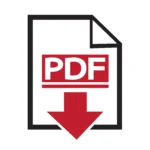AUTHOR:
Aleksandra Ancerowicz
ABSTRACT:
The article provides a theoretical and critical analysis of the relationship between language, discourse, literature and politics in political linguistics. This relationship was studied in view of the fact that politics and real political process are not only institutionally conditioned spheres of life, but also potentially the entire social space of human life, even if it is not politically meaningful. In this context, the topic of not only language and politics, language in politics and politics in language, but also in general and much more broadly – the topic of theoretical and critical relationship of language, discourse, literature and politics – acquires special scientific interest in political linguistics. That is why the idea of studying language, discourse and literature appears not only as an object of political science, but also as an object of political linguistics and literary studies. The examination of the relationship between these categories and phenomena allowed us to state that: linguistic and literary interpretations are political ones insofar as they are a reconfiguration of the appearance of a common world; political discourse that opposes interpretive and real change is itself the part of the same hermeneutic design as the interpretation it challenges, and therefore it can certainly be political. In general, the article argues that the relationship between language, discourse, literature and politics is not traditionally institutionalized and institutional one (but it may be), but rather non-institutional one, although it may relate to the institutional dimension of politics and political process.
DOWNLOAD FULL ARTICLE:

